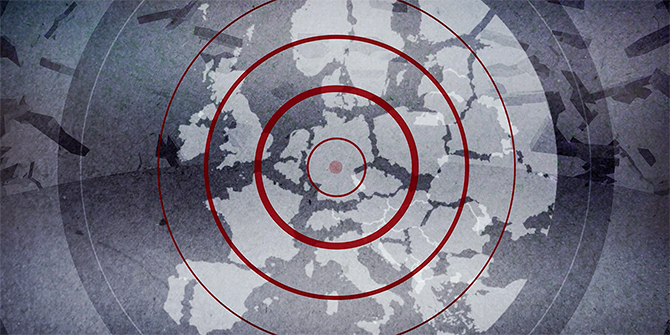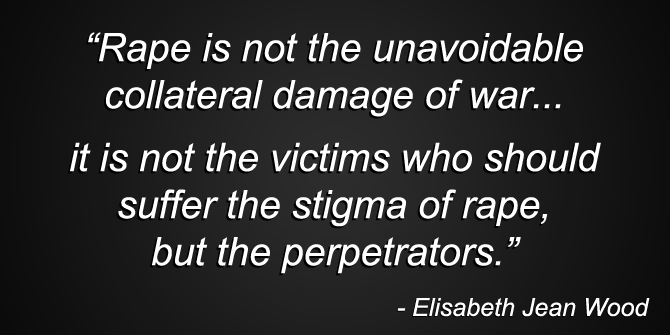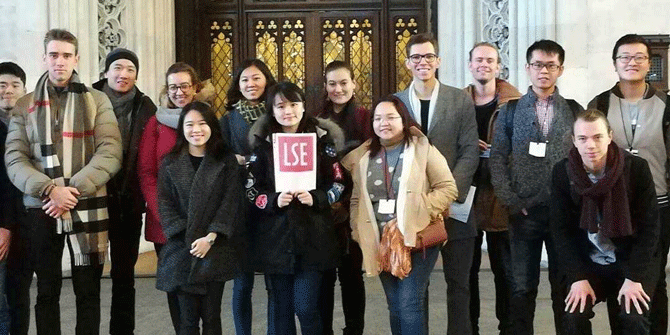
We ask Professor Martin Lodge about TransCrisis, a collaborative research project which has brought together experts from across Europe to assess the EU’s capacity to manage transboundary crises.
For the past three years Professor Martin Lodge has led TransCrisis, an EU-funded Horizon2020 research project, coordinated by LSE’s Centre for Analysis of Risk and Regulation (carr), which has brought together experts from across Europe to undertake a detailed and wide-ranging analysis of transboundary crisis in the European Union.
The project looked at examples such as the financial crisis, the refugee crisis and youth unemployment, assessing how the EU manages them and how they could improve their approach in future. We sat down with Martin to find out more about the project and its relevance at a time when Brexit and the growing signs of a rise of ‘illiberal democracy’ across Europe are bringing the legitimacy of the EU into question.
First of all, what is a transboundary crisis and what challenges does it pose?
Crisis is about elements of uncertainty, threat and urgency. Transboundary crises are not just about cross-jurisdictional crises, but involve other types of boundaries, whether these are sectoral, professional, legal or organisational. Transboundary crises are therefore phenomena that challenge any form of organisation at whatever level of government. They defy categorisation and managing them requires coordination.
Our definition of transboundary crisis was therefore broad: we wanted to know what the people themselves understood as a transboundary crisis. In particular, we focused on three areas, namely a) the ‘traditional’ civil protection area of crisis management, for example in pandemics or natural disasters, b) crisis emerging as part of the Single Market, be it in the area of banking, electricity or invasive alien species, and c) in the area of ‘backsliding’, namely the rejection by certain member states of constitutional liberal democracy.
This project brought together experts from institutions and organisations across Europe, how important was this collaborative approach to the research?
We (LSE’s Centre for Analysis of Risk and Regulation) are committed to cross-disciplinary research and to collaborative research with international partners. It is therefore essential for us to receive funding in order to be part of international networks of researchers that are united in their interest in a sustained project of research.
Coordinating this TransCrisis project as part of Horizon2020 is therefore a privilege and a sign of international recognition. It allows us to engage in different research themes and approaches across international relations, EU studies and public administration, and it confronts us with different understandings of crises. TransCrisis research became ever more relevant as transboundary crises emerged, whether it was the refugee crisis, the increasing illiberal nature of the state in Hungary, the constitutional crisis over Catalonia or Brexit.
This research has come at an interesting time for the EU when it is facing various challenges to its legitimacy in the wake of UK’s Brexit vote and a general resurgence in populism in politics. How much did these factors inform your research and what can your findings tell us about the future of Europe from this perspective?
TransCrisis was launched in a pre-Brexit world. Its European-wide focus means that Brexit is just one factor among many when considering transboundary crisis management in the EU.
However, the transboundary crisis issue is one that is central to all debates about the future relationship of the UK with the EU: how to organise governance arrangements under conditions of interdependence. For example, invasive species such as the Asian Hornet might spread to the UK regardless of Brexit.
The project has produced a substantial range of outputs and information materials. Could you talk us through them?
This project was about producing academic research. However, a central goal was that we would communicate our research in accessible ways during the duration of the project. On our website you can find a set of animated films that summarise the research findings.
To apply our research to a learning environment, we have also produced an ‘e-module’, a set of films in which the different TransCrisis researchers discuss their work and link it to broader issues in the field of EU governance and transboundary crisis management.
We also produced a range of policy papers, such as a White Paper on the future governance of EU transboundary crisis management, we produced recommendations on how to take research on ‘societal challenges’ in the European context forward, and we also produced a short paper that summarises our key findings. The website also contains a range of blogs that address a range of research projects directly or comment on political issues of immediate relevance to TransCrisis.
Of direct relevance to those involved in active ‘crisis management’ is a specific ‘survey tool’ to inform decision-makers on how much capacity exists in their organisation or their sector to deal with transboundary crises.
Finally, what kind of impact do you hope the project will have both within the EU and beyond?
I would hope that we will have achieved three things. Firstly, that we have generated research that stands the test of time as reference point for future discussions on EU governance and transboundary crisis management more generally. Secondly, that we have managed to encourage a conversation in European circles about the cross-sectoral insights one can gain about crisis management, because at present these conversations remain sector-specific, and finally, that we have built sustained international linkages with fellow researchers and practitioners that support our ongoing research in transboundary risk, crisis and regulation.
 Martin Lodge is Professor of Political Science and Public Policy at the LSE Department of Government and director of the Centre for Analysis of Risk and Regulation (CARR).
Martin Lodge is Professor of Political Science and Public Policy at the LSE Department of Government and director of the Centre for Analysis of Risk and Regulation (CARR).
![]() Visit the TransCrisis website to find out more about the project, watch the animated films and access the e-module and other resources – www.transcrisis.eu
Visit the TransCrisis website to find out more about the project, watch the animated films and access the e-module and other resources – www.transcrisis.eu
You can also follow TransCrisis on Twitter – @TransCrisis
Note: this article gives the views of the author, and not the position of the LSE Department of Government, nor of the London School of Economics.





